The shirtless man drops to one knee and begs for his life in Arabic, but he receives no mercy. A Hamas terrorist lifts his boot and lands two blows to the man’s bare torso. Then a second gunman kicks him in the side, followed by a third, propelling him to the ground.
The grim scene unfolded at the kibbutz Re’im on the morning of Oct. 7 and was recorded by a dashboard camera.
The victim was Osama Abu Asa, a security guard who watched over stores in the Jewish community 5 miles from the Gaza border. He was pleading in Arabic to the terrorists, for he was an Arab himself — one of thousands of minority tribespeople living in shantytowns in Israel’s Negev desert, essentially trapped between two worlds.
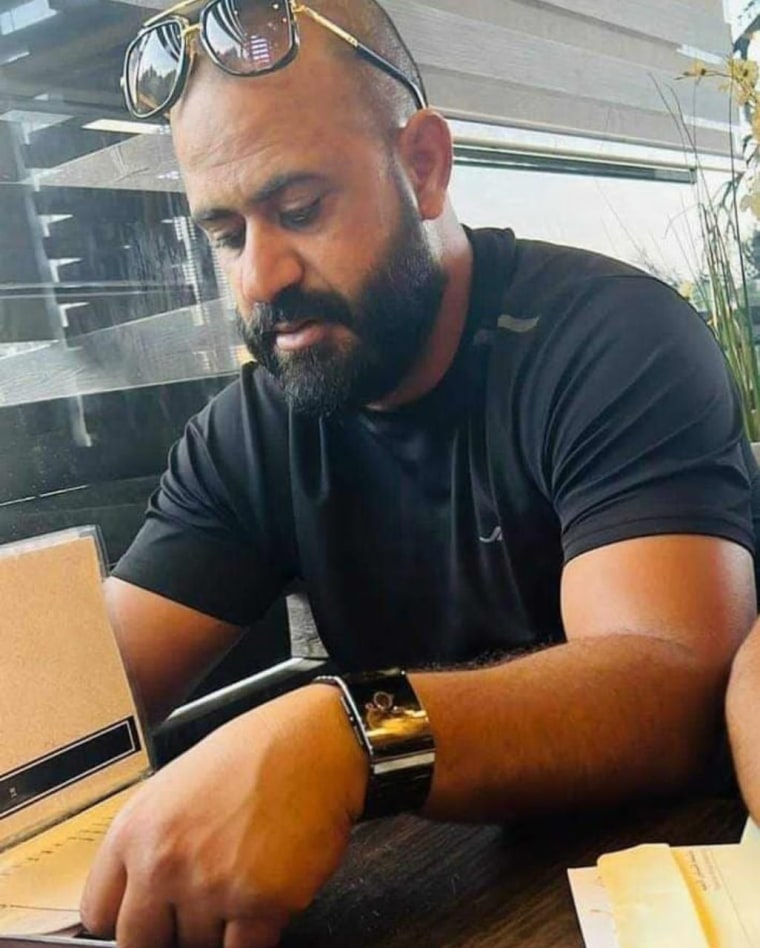
Abu Asa would not survive the morning: His body was later found with bullet wounds to the head and chest, said his brother, Jawad Abu Asa.
“Osama was a good man,” Jawad Abu Asa said in an interview, crying as he spoke. “He cared for his family, prayed on time and helped everyone, even the people of Gaza.”
Hamas’ surprise assault killed more than 1,300 people in Israel. The vast majority were Israeli Jews, but the dead also included Obama Abu Asa and at least 14 other Bedouins, some of whom were killed in rocket attacks on their villages.
The Bedouins are descendants of Arab nomads who roamed the desert for hundreds of years, herding sheep, goats and camels.
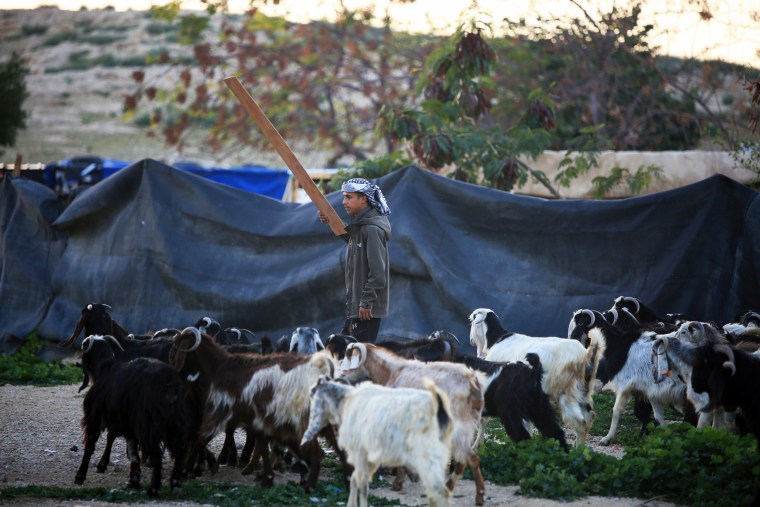
But in the aftermath of the 1948 Arab-Israeli War, most of the Bedouins living in the southern Negev fled the area or were forced out, relocating to Jordan, Syria, the West Bank and Gaza. Israeli authorities concentrated those who remained into a smaller patch of desert and later sought to move them into newly built townships.
But many refused, reluctant to give up their ancient way of life.
There are now about 300,000 Bedouins in the Negev.
An estimated 100,000 live in villages without electricity, running water and paved roads. Because the villages are not officially recognized by the government, it is illegal for the Bedouins to build permanent homes. They live in small hovels, under constant threat of demolition, in communities that lack rocket sirens, bomb shelters and cover from Israel’s Iron Dome missile defense system.
For decades the Bedouins have sought to have their villages recognized by the Israeli state and provided with basic services, as well as protection from rocket attacks.
But their pleas have largely gone unheeded.
The Hamas slaughter of Bedouins has laid bare their precarious existence and aggravated long-held grievances against the government.
“As citizens of Israel and as Palestinians, we are suffering twice,” said Bedouin leader Talab el-Sana, a former Knesset member and a lawyer who provides legal assistance to those who live in dire poverty in the unrecognized villages. “We suffer from Israel’s discriminatory policies and we suffer from attacks by Hamas, living without shelters and nothing to protect us from the bombs.”
At least seven Bedouins were killed by rockets fired from the Gaza Strip, including a 6-year-old boy, according to local officials. Eight others were gunned down working in rural Jewish communities near Gaza, where Hamas is based.
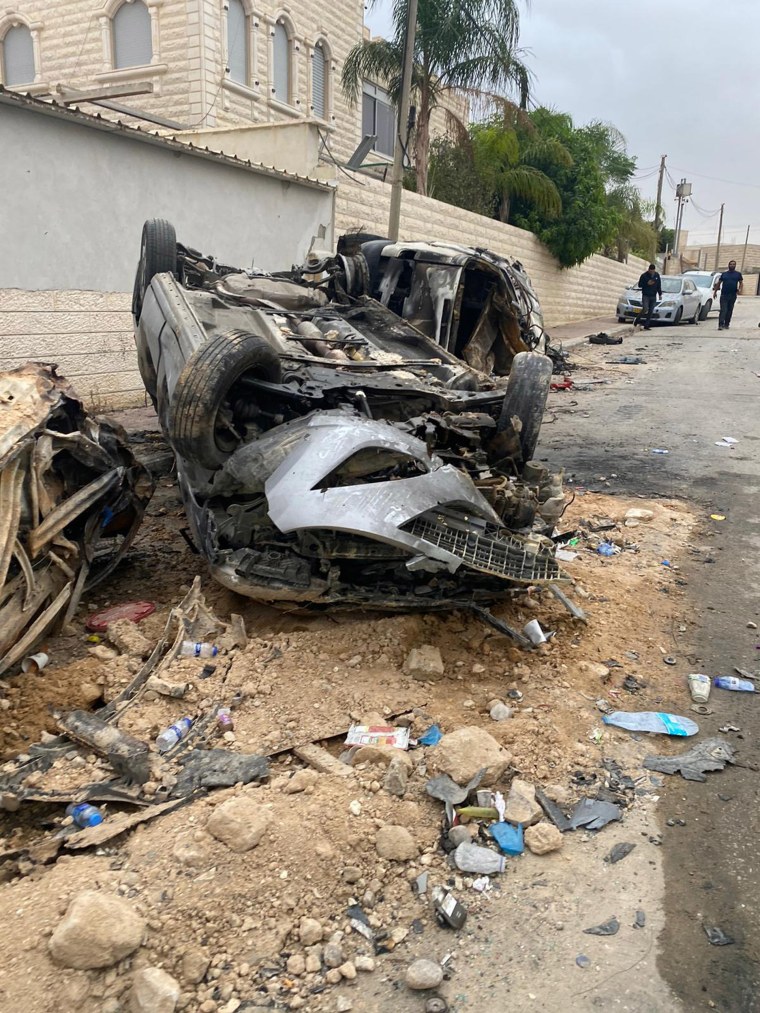
Seven more Bedouins are believed to have been abducted by the terrorists and taken back to Gaza.
Yazan Zakaria Abu Juma, 6, was playing on a street in the Bedouin township of Arara when a rocket shell dropped from the sky.
“I was close to where the shell fell, and I saw people running terrified, trying to protect themselves,” said Khaled Abu Juma, his cousin.
Arara is one of seven townships the government established for the Bedouins from 1968 to 1989. As such, it has more services than the dozens of villages where Bedouins have stayed put.
Six people were killed by rocket fire in one of the unapproved villages, Al-Bat. The dead included two brothers, ages 11 and 12.
Faiza Abu Subaih, 57, was in her makeshift home, making breakfast for her grandchildren, when rockets landed on the sheet metal roof without any warning, family members said.
Abu Subaih died on the spot, as did her 13-year-old granddaughter, May Zuhair Abu Subaih.
“If my cousin lived in a real house, she would not have been killed," Ali Abu Subaih said, referring to Faiza.
Abu Subaih said most people in the village were in their homes when the rockets began to fall because it was an official holiday.
"There are no sirens in our village for this," he said.
Abu Subaih said he and his family have no interest in moving to one of the more urban townships because “we, Bedouins, have a different lifestyle than those who live in cities.”
But life at the more than two dozen unrecognized villages is harsh. Unlike the nearby Jewish communities, they lack basic infrastructure such as sewers and services such as trash collection. The few schools are often long, bumpy bus rides away.
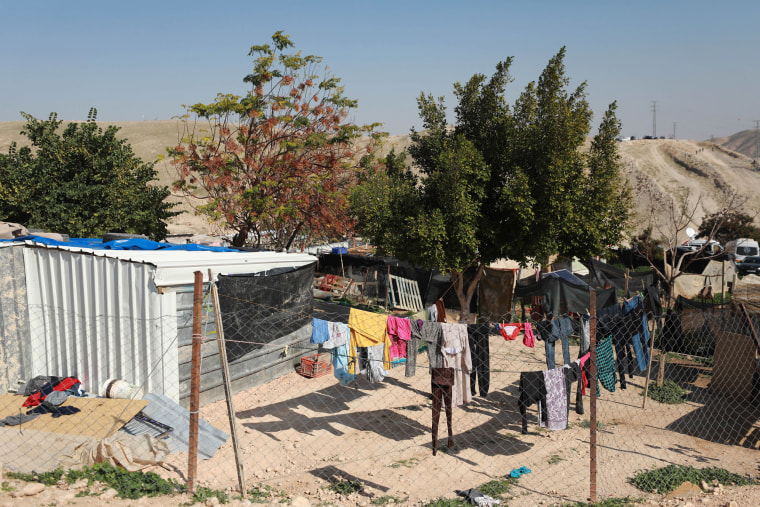
“They are the poorest of the poor in Israel, with the lowest education levels in the country,” said Yeela Raanan, the general manager of the Regional Council for the Unrecognized Villages in the Negev.
Over the years, some Bedouin villages have gained recognition from the government. But 28 of the 46 remained unrecognized, Raanan said, leaving them in a state of limbo.
“The homes are built in the cheapest manner they can with the expectation that they will be demolished by the government,” Raanan said.
That makes them particularly vulnerable when war breaks out. Israel has distributed mobile concrete bomb shelters to some places in the south, but not to the Bedouin villages.
“Every time there is a war with Gaza, they are exposed to the danger of the missiles without anywhere to go,” Raanan said.
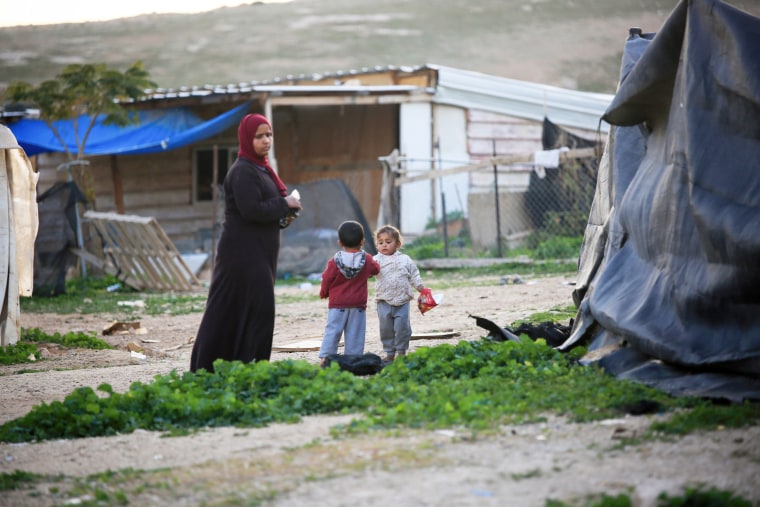
The mayor of the Bedouins’ largest town, Rahat, said he lost three of his own family members in last weekend's attack.
“We were surprised by what Hamas did,” Mayor Ata Abu Mudegem said. “We are peaceful Arabs who live in the south of the country.”
Bedouins have long played a crucial role in the Israeli military, prized for their tracking ability in the desert. Bedouin trackers are said to have uncovered one of the first Hamas tunnels along the Gaza border and stopped commanding officers from stepping on bombs hidden along Israel’s northern border with Lebanon.
The military offers one of the clearest pathways for Bedouins to escape poverty, but it also means the prospect of engaging in warfare against members of their own people.
The brother of Osama Abu Asa, the man seen in the video, said he had never served in the Israeli army. The father of a 4-year-old boy and a 12-year-old girl, he worked a security job at a school before he took on a new role two months ago watching over stores in Ke’im.
“My brother is an Arab just like them and not a soldier,” said Jawad Abu Asa, the victim’s brother.
The video that captured the beating came from Osama Abu Asa’s car. His brother said the gunmen took him to another location and shot him twice. Israeli solders later recovered the body and returned it to his family.
“Hamas are people who have no mercy in their hearts,” he said.
Rich Schapiro reported from New York. Khalid Razak reported from Baghdad.
